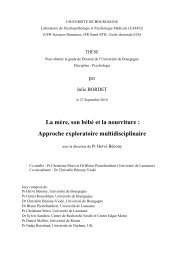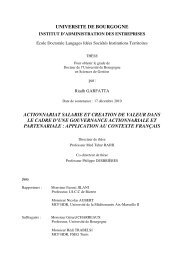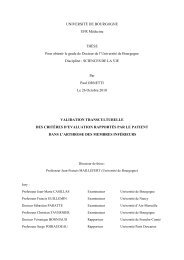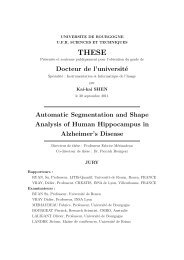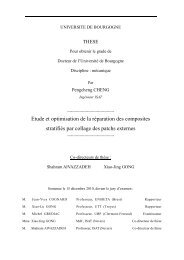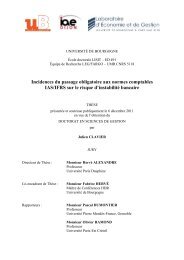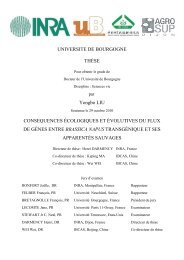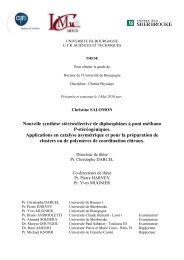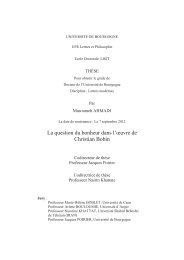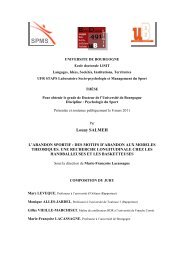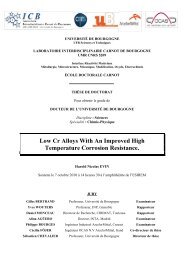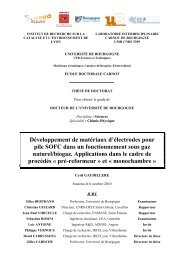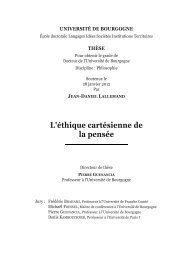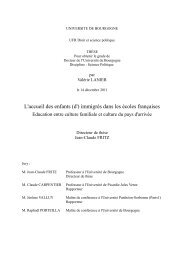Higher education in Asian countries and the role of international ...
Higher education in Asian countries and the role of international ...
Higher education in Asian countries and the role of international ...
Create successful ePaper yourself
Turn your PDF publications into a flip-book with our unique Google optimized e-Paper software.
255<br />
certa<strong>in</strong>ly today we have had a different scenario. At <strong>the</strong> same time we should not miss to see that<br />
<strong>in</strong>vestment <strong>in</strong> primary <strong>and</strong> secondary <strong>education</strong> has <strong>in</strong>direct positive impact on <strong>the</strong> dem<strong>and</strong>,<br />
growth <strong>and</strong> development <strong>of</strong> higher <strong>education</strong> <strong>in</strong> Asia. The rapid progress towards EFA <strong>and</strong><br />
<strong>in</strong>creas<strong>in</strong>g dem<strong>and</strong> for skilled labor contributed to an expansion <strong>of</strong> <strong>education</strong> at all levels<br />
(Varghese N. , 2010)<br />
UNESCO is not <strong>the</strong> only stakeholder that is responsible for <strong>the</strong> development <strong>of</strong> higher <strong>education</strong><br />
<strong>in</strong> Asia. As far as <strong>the</strong> UNESCO <strong>role</strong> is concerned we should see whe<strong>the</strong>r it efficiently played its<br />
<strong>role</strong> <strong>in</strong> its member <strong>countries</strong> through policy directions, capacity build<strong>in</strong>g, technical assistance,<br />
<strong>in</strong>formation shar<strong>in</strong>g <strong>and</strong> monitor<strong>in</strong>g, <strong>and</strong> report<strong>in</strong>g. This approach will enable us to learn about<br />
<strong>the</strong> IGOs‟ <strong>role</strong> <strong>in</strong> process <strong>of</strong> development <strong>of</strong> higher <strong>education</strong>. There is possibility that <strong>in</strong> some<br />
cases UNESCO has performed well <strong>and</strong> properly fulfilled its functions but <strong>the</strong> results <strong>and</strong><br />
outcomes were little. In such cases, as we saw <strong>in</strong> Game Theory, <strong>the</strong> cooperation from both sides<br />
can only produce <strong>the</strong> desired results.<br />
The IGOs <strong>in</strong>itiatives <strong>of</strong> streng<strong>the</strong>n<strong>in</strong>g primary <strong>education</strong> sub-sector through <strong>the</strong> Education For<br />
All (EFA) program launched <strong>in</strong> early 1990s led to an <strong>in</strong>crease <strong>in</strong> <strong>the</strong> enrolment at secondary level<br />
<strong>and</strong> subsequently resulted <strong>in</strong> <strong>the</strong> expansion <strong>of</strong> higher <strong>education</strong> (Varghese N. , 2004).<br />
Consequently <strong>the</strong> GER at tertiary level has <strong>in</strong>creased significantly <strong>in</strong> all <strong>Asian</strong> <strong>countries</strong> dur<strong>in</strong>g<br />
<strong>the</strong> last <strong>the</strong> first decade <strong>of</strong> this century <strong>and</strong> it is fur<strong>the</strong>r on <strong>the</strong> rise. Fur<strong>the</strong>r UNESCO through<br />
different <strong>in</strong>itiatives prepared <strong>the</strong> ground for <strong>the</strong> future development <strong>of</strong> <strong>education</strong> particularly <strong>in</strong><br />
<strong>the</strong> low <strong>in</strong>come <strong>and</strong> lower-middle <strong>in</strong>come <strong>countries</strong>. UNESCO <strong>in</strong>itiatives are helpful <strong>in</strong><br />
facilitat<strong>in</strong>g disadvantaged communities to participate, contribute <strong>and</strong> benefit from <strong>the</strong> pool <strong>of</strong><br />
knowledge (Haddad 2005).<br />
In Asia, before 1980s, though <strong>the</strong> size <strong>of</strong> higher <strong>education</strong> was not so large, it was exp<strong>and</strong><strong>in</strong>g<br />
cont<strong>in</strong>uously <strong>in</strong> many <strong>countries</strong> accord<strong>in</strong>g to <strong>the</strong> UNESCO data. However <strong>the</strong> economic crisis <strong>in</strong><br />
1980s had resulted <strong>in</strong> resources cutbacks for higher <strong>education</strong> that put a negative impact on its<br />
growth. Dur<strong>in</strong>g this period student enrolment <strong>in</strong> <strong>the</strong> most <strong>of</strong> <strong>the</strong> <strong>countries</strong> decl<strong>in</strong>ed (Altbach P. ,<br />
1984). The rate <strong>of</strong> return studies <strong>of</strong> <strong>the</strong> 1970s which showed lower returns to <strong>in</strong>vestment <strong>in</strong><br />
higher <strong>education</strong> <strong>in</strong> comparison with primary levels, <strong>and</strong> <strong>in</strong>creased political support for basic<br />
<strong>education</strong> <strong>in</strong> <strong>the</strong> 1980s, contributed to a shift <strong>in</strong> <strong>in</strong>vestment priorities <strong>in</strong> favor <strong>of</strong> primary<br />
<strong>education</strong> (Varghese N. , 2010). The World Bank studies, <strong>in</strong> early 1980s, to analyze <strong>the</strong> rate <strong>of</strong>



